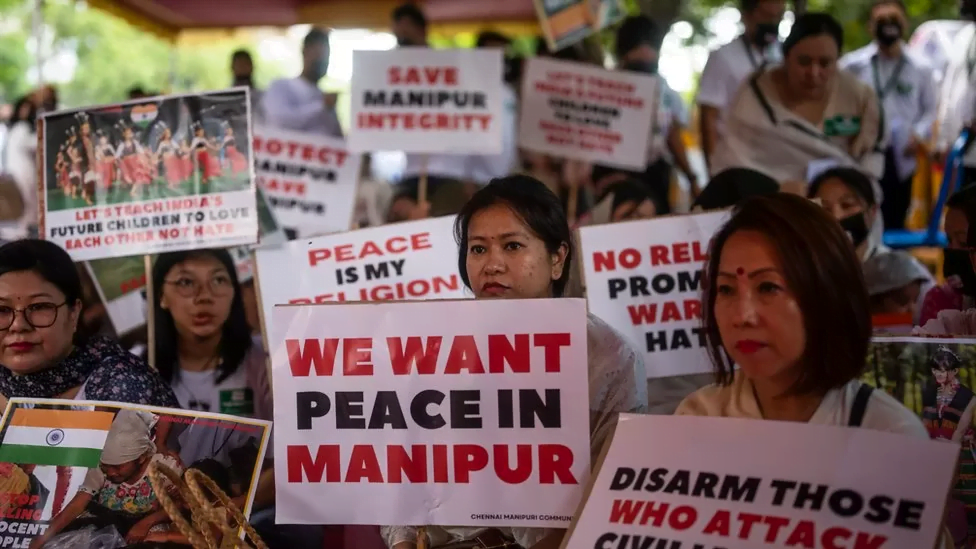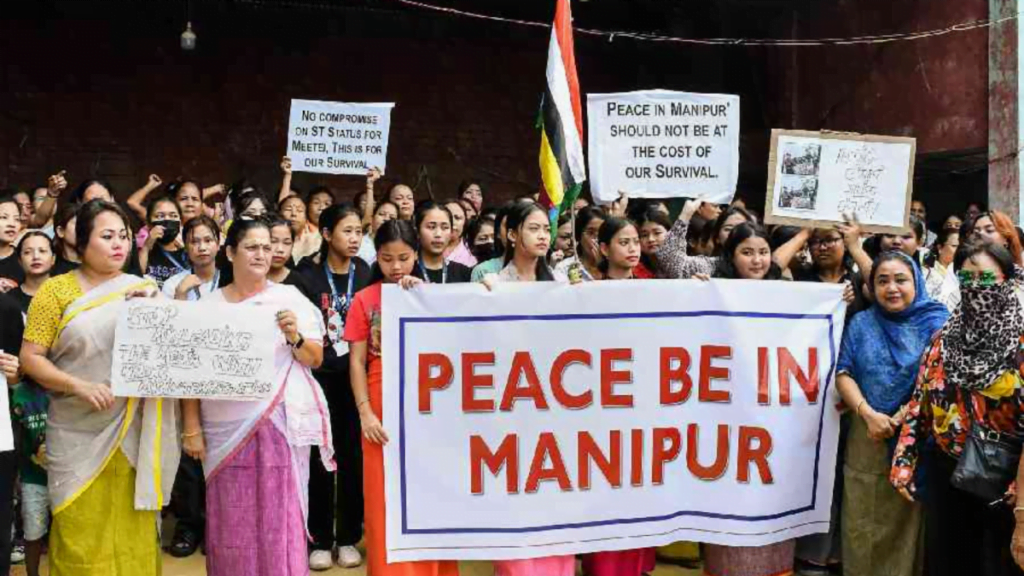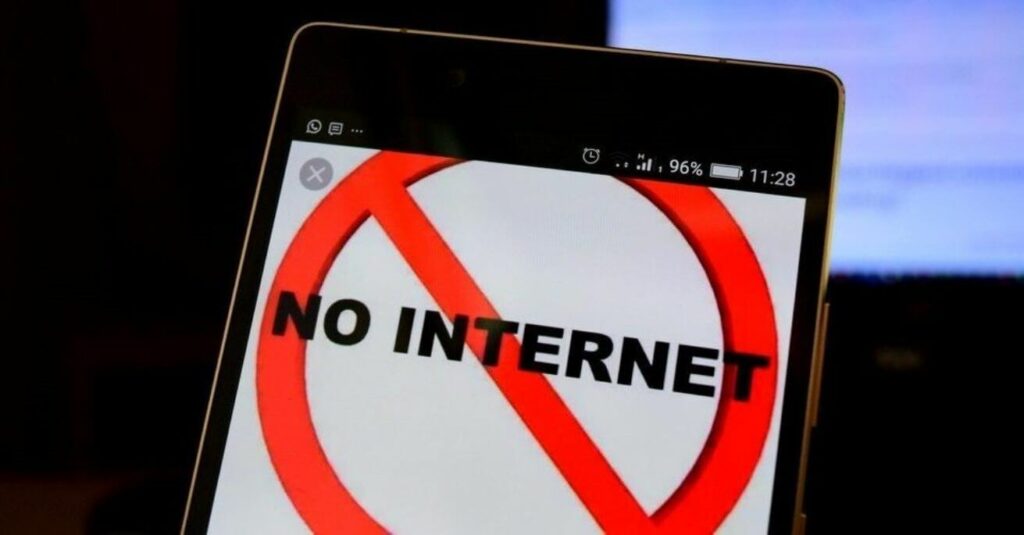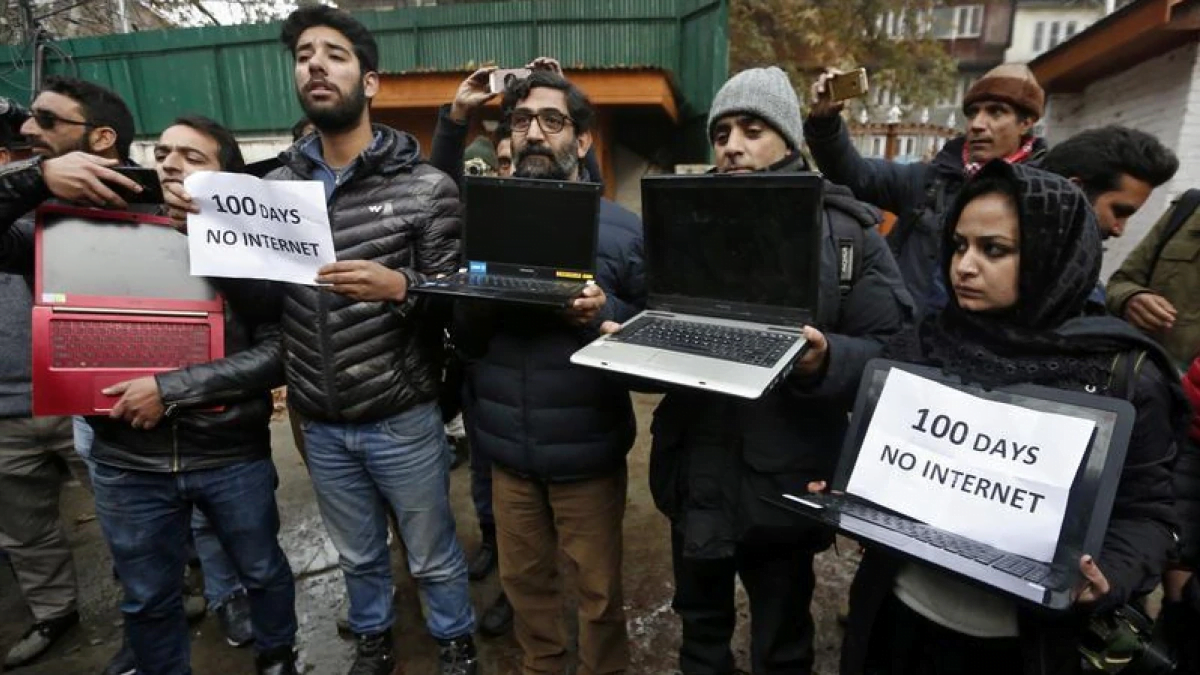The country is in the state of rolling out 5G services nationwide, but the bigger picture is contrasting and diverged. It has been more than a hundred days since violence in Manipur broke out, for over two months a complete internet blackout has been imposed in the state, preventing the world from seeing the reality and the extent of human rights violations there.
A judicial bench comprising of Justice Ahanthem Bimol Singh and Justice A. Guneshawar Sharma, recently called on the state government for providing internet services on mobile phones, through whitelisting of numbers on a case-to-case basis in a gradational manner, the bench has asked the state to present a report considering this aspect.

During the hearing, the advocate general of the state or the counsel for the state, M Rarry, said that the state is looking into the directions given by the court earlier and is planning to ease the restrictions through broadband services in a liberalised manner. With its next hearing on August 31st, the bench has asked the state to devise a certain mechanism for white-listing mobile numbers and providing liberty on a systematised basis.
In March this year, a state-owned media platform mentioned India as the “Internet shutdown capital of the world,” for the country has topped the global list of states that cut- off the Internet to their citizen, for five consecutive years. Correspondingly a report by Access Now, a US digital rights advocacy group, mentions that 58 per cent of all documented shutdowns globally were in India; with 84 internet blackouts in total, more than any other country in the world.
An internet consortium of 300 organisations from 105 countries for the #keepiton coalition took to writing to Union minister for telecommunication Ashwini Vaishnaw calling on him to look into and review the nations’ internet shutdown framework.
The coalition has sought that the state should conduct a thorough, transparent review of its legal framework relating to restrictions on internet access; in its letter to the Union minister the consortium mentioned, “(We)you to urge you to review the legal and regulatory framework on internet shutdowns in India, Unfettered access for all to an open, secure, and reliable internet is vital to the protection of fundamental rights in India, and to ensure that the livelihoods of increasing millions of people in India dependent on digital services and a connected economy are not disrupted.”
India overtook the G20 presidency for the year 2023 from Indonesia, a step taken ahead is countered forth through illicit bans such, as the frequent disruption in access to the internet is putting at risk the country’s agenda of becoming a digital economy and a leading tech nation of the future.
When talking about the internet bans in the country, Jammu and Kashmir must be looked into, after the revocation of Article 360, in 2019 the state witnessed its longest-reigning internet blackout, which lasted for about eighteen months.
In the name of so-called prevention of the spread of misinformation to help maintain law and order, the government frequently took to banning internet access across several regions across the country, imposing digital curfew as a whole. From Kashmir (before the revocation of Article 370) and more poignantly during and after the abrogation of Article 370 to Anti-CAA/NRC protests and to the ongoing Manipur Crisis all of these events were followed by a series of internet shutdowns, therefore repudiating fundamental and constitutional rights, like the Right to freedom of speech and expression mentioned in Article 19 of the Indian Constitution.
The internet shutdown, in Manipur could be another reason for the worsening of the situation in the state, accounting for the atrocities committed, in a video that went viral last month, which came into acknowledgement only after the video surfaced on the internet.
It was two months later, of filing the complaint that the state police came into action as if they needed a stir after the clips went viral. The civil rights groups after having strongly copyrighted the act, have taken it down to slam the government, arguing that in addition to having a negative impact on work, education and daily life, shutdowns also prevent information on atrocities from being discovered.

When talking about the internet bans in the country, Jammu and Kashmir must be looked into, after the revocation of Article 360, in 2019 the state witnessed its longest-reigning internet blackout, which lasted for about eighteen months.
In the year 2021, 106 internet shutdowns were observed in total, which according to Access Now accounted for a loss of an estimated 600 million USD, the highest globally. Followed by 84 shutdowns in the year 2022, it is the state government that often impose internet shutdown, in a joint report by the Human Right Watch and Internet Freedom Foundation it was observed that Rajasthan, West Bengal, Maharashtra and Arunachal Pradesh too had a significant number of shutdowns in past five years.
Disproportionate internet shutdowns have a direct adverse impact on people who rely on government programs and social protection systems, it makes these marginalised groups more vulnerable. According to a report these internet shutdowns have adversely affected the economy, this year itself the total economic adversities reached Rs. 2091 crore ($255.2 million) in the first half.
Laws governing internet shutdowns
In India internet shutdown and a digital curfew is governed mainly by two laws; the first, is Section 144 of the Code of Criminal Procedure Act 1995 and the other is Section 5 of The IndianTelegraph Act 1885, the acts govern the consonance in a temporary suspension of Telecom Services within the country; India is among the few nations who have altered and re-altered these acts in recent years.
Section 144 of the Code of Criminal Procedure, 1973 (CRPC) provides wide power to the state in taking preventive measures dealing with an imminent threat to the public peace; the section does not confer any direct powers to the state on suspension of telecom services or internet shutdowns yet its vague nature allows its subsequent use by the authorities.
Internet being a significant element of public infrastructure, education policy and a medium of information, prohibition of it is deemed as forbidding of human rights, such actions always lead to serious consequences, for affected users might face issues in availing emergency services, important health information Etc.
In the Telecom Rules of 2017, the court(s) on its own accord has asked the state not to use this section for imposing internet shutdowns in suppressing the legislative intent, but the orders remain resisted by the states.
Accordingly, Section 5 of the Indian Telegraph Act, 1885 along with the 2017 Telecom Rules, deals with safeguarding the need to provide a reason and submitting a copy with the Review committee within one working day for/of imposing the internet bans in the region.

Following the shutdowns imposed in Jammu and Kashmir, the above law stood abrogated on account of logistical difficulties.
Internet being a significant element of public infrastructure, education policy and a medium of information, prohibition of it is deemed as forbidding of human rights, such actions always lead to serious consequences, for affected users might face issues in availing emergency services, important health information Etc. Since the internet is now infused in every sector of the Indian economy, debarring its use will cause a hamstring effect in its overall development.
Access to the internet falls under Article 19(1)(a) of the Indian Constitution thus being a fundamental right granting freedom of speech and expression; internet being a crucial aspect has occupied maximum space in today’s life, therefore terming it as a basic amenity won’t be imprecise. Therefore, arbitrary use of laws by the state, conferring the imposition of an internet curfew in the country must be curbed.
The intervention by the judicature, from time and now is crucial, as it is the interest of commoners that always lie on the brink, in jeopardy, for this time it is their fundamental right which lay at risk.
About the author(s)
Anupama intends to be an artist in neutral, aka a dabbler- cum-learner. Her interests lie in music, nature, stories transcending cultural boundaries, human welfare, etc. When she is not around she can be found strolling along the ghats of Varanasi. To add she has a lab- named Miley.





